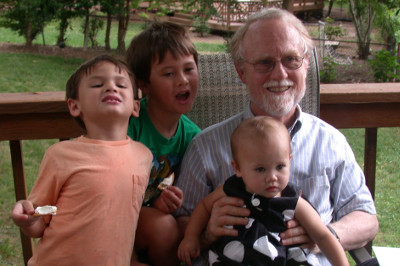
by Clyde Christofferson
How should we proceed with support for small communities – “wherever two or three are gathered …”? Cultivation of the “collective wisdom” of the People of God is far more fundamental and important than distinctions (lay or cleric, free or slave, male or female).
Furthermore, it is quite challenging. Do we have reason to believe that a process that is more listening than talking, with discernment of the Spirit as its objective, will work? If those in a small group or “listening circle” listen so that their own contributions are informed by the lived experience of others, then a “collective wisdom” grounded in the Spirit can emerge.
“Collective wisdom” respects diversity. People are in different places on their journeys. So “common ground” is not necessarily an outcome. The loving outcome, prompted by the Spirit, may well be a plurality of views that in combination respects the diversity of the collective.
It is not sufficient that people choose “representatives” who would then participate in such a process. There needs to be participation at the grass roots, so that everyone understands from personal experience – even if that experience is only occasional – how the process works.
If this process is undertaken with care, we might hope that over time its outcomes would earn trust. Then it becomes possible for webs of trust to emerge. This is a long term cultural shift, and should not be burdened with too many urgencies of the moment. It is more important that the process itself be nurtured.
As a practical matter – if we are serious about doing this with care – skills need to be developed gradually. Begin with “listening circles” of the like-minded before engaging people from widely different cultures or perspectives in the same “listening circle”.
If we do nothing more than observe how this process develops in a wide variety of circumstances, so that all can benefit from the experience of others, that will be a significant contribution toward the wisdom of the community.
And do we not need such a process – one that values diversity and cultivates a mutuality of trust – for a coherent voice to emerge out of grass roots participation? As it is said, trust in the Spirit always.
But that kind of trust is hard. The all too human tendency is to organize the process so that it will work in accordance with the light of reason. This is how we got to hierarchy, bringing along patriarchy in its wake. Being patient with participatory listening at the grass roots, testing all things for what is good, is an unfamiliar and uncomfortable position.
When Francis talks about “synodality” perhaps this is the necessary discomfort that must be endured by erstwhile leaders. Like discernment, the process requires patience. It is not merely a coordination project. It has a clear objective -- participation of the whole People of God, from the grass roots, in both a listening church and a teaching church -- but no clear concretization of the objective.
Indeed, how is such an objective possible? It seems impossible. Yet we know it must be possible. Prior models -- in particular the clericalist structures that reached their high-water mark in the pre-Vatican II church -- have demonstrated their inadequacy, most recently manifest in the crisis of clerical sexual abuse.
We need a new paradigm. It is not a matter of identifying such a paradigm and pursuing it, as if an inverted pyramid were a concrete expression of such a paradigm. Rather, we need a strategy for a journey -- a virtual pilgrimage -- guided by the objective but whose concrete expression is open to the Spirit.
The obvious starting point is "structured listening". That is what listening circles and other formats for prayerful small group discussion are about. That is, set aside the governance function. If governance were the starting point the process would rather quickly gravitate – in quite ordinary human fashion – toward a more manageable system of representatives and decision-making protocols agreed to by the representatives.
Avoid that temptation and instead nurture grass roots participation. See what comes of it. There may be many ways to make this work, for the Spirit to have its voice. If we share what comes up from the grass roots there may emerge the initial threads of what can become webs of trust.
This could be the first step in giving practical effect to the "upside down pyramid".